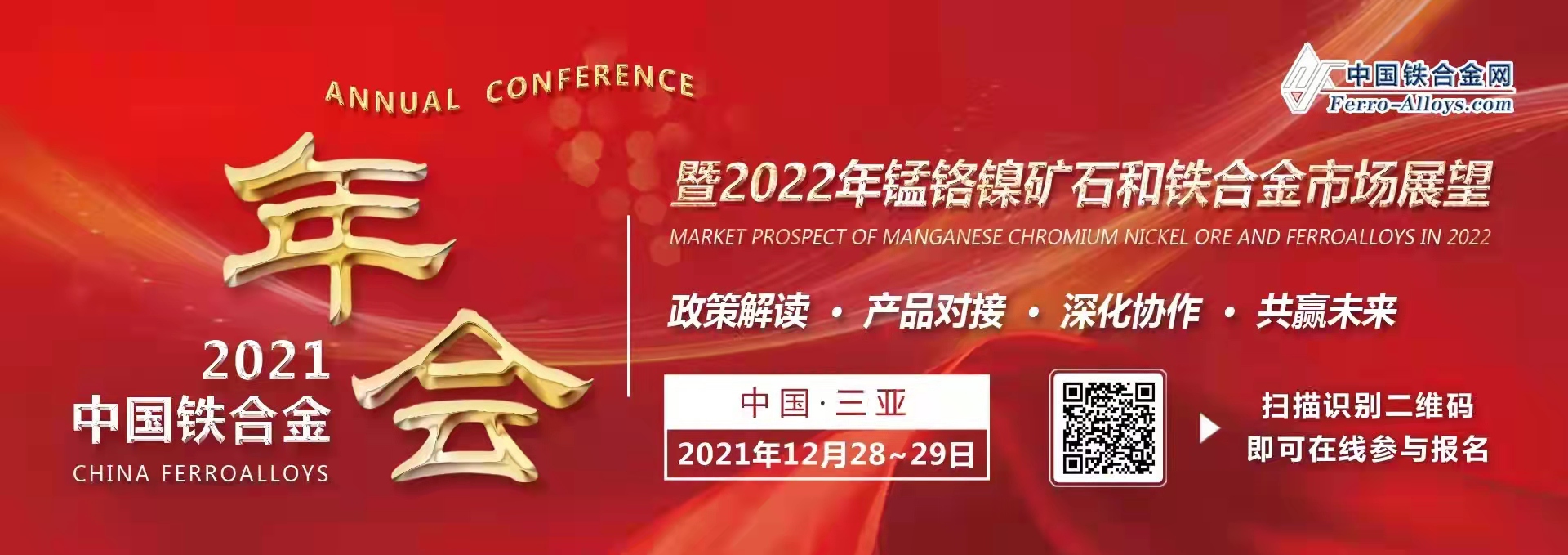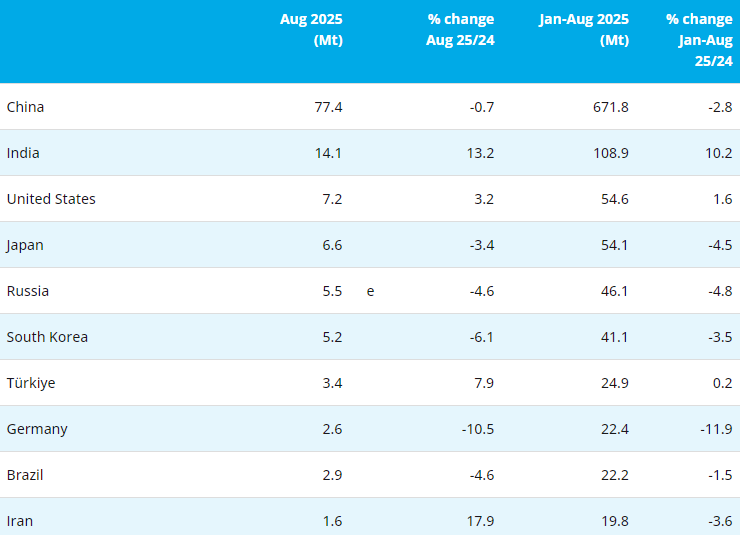
-- As winter nears, magnesium companies in Fugu, a resource-rich county in northwest China's Shaanxi Province, are striving to realize their annual emission reduction targets while keeping their commissioned furnaces at full steam amid an ongoing upgrade of equipment and technology to save energy and improve efficiency.
-- Fugu, known as the country's "magnesium capital", is sparing no efforts to stabilize the strained global supply of the industrial product.
-- The county meets about half of the world's demand for magnesium -- a key metal material.
Though production is being slashed to meet emission targets, furnaces that turn raw materials into magnesium burn around-the-clock in China's Fugu County in an effort to stabilize the strained global supply of the industrial product.
Finished magnesium ingots are quickly packaged and loaded onto trucks, with the majority for export, so much so that the warehouses are often empty in Fugu, a sharp contrast with the overstock last year due to the COVID-19 pandemic. The resource-rich county in Shaanxi Province meets about half of the world's demand for magnesium -- a key metal material.
As winter nears, magnesium companies in Fugu are striving to realize their annual emission reduction targets while keeping their commissioned furnaces at full steam amid an ongoing upgrade of equipment and technology to save energy and improve efficiency.
PRODUCTION CAP FOR ENVIRONMENT
In Fugu Taida Coal Chemical Co., Ltd., several workers are packing and loading finished products prepared to be sent out to the world, with the only one forklift truck busy transporting goods back and forth in workshops.
"The magnesium metal enterprises in Fugu County including Taida halted production for 10 days from Sept. 20, which resulted in a shortage of magnesium supply and soaring prices in the global market," said Yang Yongliang, general manager of the company that is now ramping up production.
The suspension was aimed at meeting the energy conservation and emission reduction targets, Yang said. From September to the end of this year, some key energy-consuming enterprises including magnesium smelting ones in Fugu have to cut production for the targets.
"The magnesium industry in Fugu is of global significance. Therefore, we have to strike a balance between energy conservation and production, to ensure the stability of the global supply chain while protecting the environment," said Wang Baolin, general manager of Jinchuan Hongtai Magnesium Alloy Co., Ltd.
Wang said the production cap could be conducive to the whole industry. In the long run, the increasingly strict environmental protection requirements prompt energy-consuming enterprises to reduce pollution and conduct transformation.
With an annual profit of less than 30 million yuan (about 4.7 million U.S. dollars), Shengxin Magnesium Industry Co., Ltd. took the initiative to stop production for three months this year, during which it renovated the equipment and upgraded the production process.
Though we spent three years of profits on renovation, the projects could facilitate cost reduction, technological innovation and management improvement, said Yu Xiong, general manager of the company.
"The energy consumption has been curtailed by 30 percent, and the production efficiency rises by 40 percent," Yu said.
MULTIPLE FACTORS BEHIND PRICE FLUCTUATIONS
Magnesium, dubbed as "industrial condiment," is an essential material for manufacturing aluminum alloy in vehicles, mobile phones, computers and other industries, and has been widely used in areas including aerospace, light industry, metallurgy and instrumentation.
"The world consumes about 1 million tonnes of magnesium for industrial use every year, of which Fugu County consumes about half -- with 500,000 tonnes sold to the United States, Germany, the Netherlands, the Republic of Korea and Japan among other countries," said Chen Mingqi, vice president of the magnesium industry association in Fugu County.
"The pandemic wreaked havoc on the export of magnesium last year, leading to overcapacity and a drop in price to 13,000 yuan per tonne at its lowest. The whole industry suffered great losses, and some companies halted production or reduced production. From last May, the market price of magnesium rose gradually to more than 30,000 yuan per tonne and soared to a maximum of 65,000 yuan since late September," Chen said.
Another reason for the recent soaring prices is reduced magnesium production as a result of China's move to conserve energy and cut emissions. The imbalance between supply and demand leads to a short-term surge in prices, according to Wang Zhenqing, vice head of the association.
Insiders believe the price increase of raw materials also contributes to the price fluctuation in the magnesium market.
"Prices of raw coal and ferrosilicon, the two main materials for smelting magnesium, have risen from around 500 yuan per tonne last year to the current rate of about 2,000 yuan, and from 6,000 yuan per tonne to 19,000 yuan, respectively," said Yang Yongliang, general manager of Fugu Taida Coal Chemical Co., Ltd.
With the gradual recovery of production capacity, the market price of magnesium has stabilized at about 46,000 yuan per tonne, with no sharp rise and fall expected," Chen said.
INDUSTRIAL TRANSFORMATION, UPGRADING
Since 2002, Fugu has vigorously developed the magnesium industry relying on its rich coal resources, with more than 30 magnesium enterprises.
As a high-energy-consuming industry, magnesium is bound to undergo transformation and upgrading with China's increasing efforts on ecological and environmental protection.
"We try to make up for the energy consumption through saving energy and reducing emissions in the downstream industries," said Tian Xiaoning, Party chief of the county.
There are 10,000 heavy trucks in Fugu County. If all the carriages are replaced with magnesium alloy and all the heavy trucks are electric, it would cut carbon emissions by more than 1 million tonnes per year, said the official, adding the county is discussing the plan with domestic car companies.
"We also plan to focus on the use of solid waste, generating 3 million tonnes of magnesium slag per year to be used as building materials," Tian said.
Some companies turn to the local utilization of magnesium, with plans to manufacture safety helmets, bicycle wheel hubs and other products.
"Compared with ordinary helmets, magnesium alloy ones are lighter and have excellent heat dissipation. The market prospects are broad," said Li Heng, general manager of Fugu Hongtai Yuanhe Magnesium Industry Co., Ltd.
"We also plan to make magnesium alloy motor assemblies, electrical integration boxes and some magnesium alloy parts on the new energy vehicles. The launches of these projects can promote the local transformation of raw magnesium in Fugu County and further enhance the added value of metallic magnesium," Li said.
Most magnesium enterprises in Fugu County are still small and medium-sized ones. "It is necessary to integrate resources of these companies next, to enhance anti-risk capabilities as a whole and contribute to the stability of the global industrial and supply chains," said Chen Mingqi.
Source: Xinhua
Copyright © 2013 Ferro-Alloys.Com. All Rights Reserved. Without permission, any unit and individual shall not copy or reprint!
- [Editor:kangmingfei]



 Save
Save Print
Print Daily News
Daily News Research
Research Magazine
Magazine Company Database
Company Database Customized Database
Customized Database Conferences
Conferences Advertisement
Advertisement Trade
Trade













Tell Us What You Think